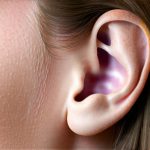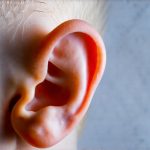Gastroesophageal reflux disease (GERD) is a surprisingly common condition, affecting millions worldwide. Most people associate it with heartburn, indigestion, and perhaps even difficulty swallowing – classic digestive complaints. However, the reach of GERD can extend far beyond the esophagus and stomach, impacting seemingly unrelated parts of the body. Increasingly, there’s growing interest in the potential link between chronic acid reflux and tinnitus, that persistent ringing, buzzing, or hissing sound in the ears. While not a direct cause-and-effect relationship is established for everyone experiencing tinnitus, evidence suggests a complex interplay where GERD might exacerbate existing ear issues, contribute to new symptoms, or even play a role in their development.
This connection isn’t immediately intuitive; why would stomach acid affect your ears? The answer lies within the intricate network of nerves, blood vessels, and physiological processes connecting the digestive system to other parts of the body, including the inner ear. Understanding this potential link is crucial for individuals suffering from both GERD and tinnitus, as addressing underlying reflux could offer a novel approach to managing their auditory symptoms. It’s important to state upfront that self-diagnosis or treatment isn’t advisable; always consult with healthcare professionals for accurate assessment and personalized care plans. This article will explore the current understanding of this relationship, outlining potential mechanisms, diagnostic considerations, and management strategies.
The Gut-Ear Connection: Exploring Potential Pathways
The idea that stomach acid could influence ear health seems counterintuitive until you consider the anatomy and physiology involved. Several pathways are proposed to explain how GERD might contribute to tinnitus or exacerbate existing auditory issues. One prominent theory revolves around the vagal nerve, a long cranial nerve extending from the brainstem down through the neck and into the abdomen, playing a vital role in regulating both digestive function and inner ear health. – Irritation of the vagus nerve due to acid reflux can lead to signals being sent to the auditory centers of the brain, potentially manifesting as tinnitus. – Another pathway involves inflammation. Chronic GERD causes ongoing inflammation in the esophagus and surrounding tissues. This systemic inflammation isn’t confined to the digestive system; it can spread throughout the body via the bloodstream, reaching the inner ear and contributing to its dysfunction.
Furthermore, acid reflux can affect nutrient absorption. Malabsorption of essential vitamins and minerals – particularly B12 and vitamin D – has been linked to tinnitus. GERD-induced inflammation and damage to the intestinal lining can hinder proper nutrient uptake, potentially exacerbating auditory symptoms. It is also believed that changes in the middle ear pressure due to fluid imbalances, possibly influenced by systemic inflammation from GERD, might contribute to tinnitus perception. Finally, it’s worth noting that medications used to treat GERD – particularly proton pump inhibitors (PPIs) – have been linked to nutrient deficiencies and other side effects that could indirectly impact inner ear health. This is an area of ongoing research.
The relationship isn’t necessarily one-way; individuals with tinnitus may experience increased stress, which can worsen GERD symptoms, creating a vicious cycle. Managing both conditions requires a holistic approach recognizing the interconnectedness of gut and ear health. The complexity emphasizes why pinpointing GERD as a direct cause in every case is challenging, but it highlights the importance of considering it in differential diagnoses for tinnitus sufferers. Can Connection and Calm Support Digestion may also help manage stress levels.
Diagnostic Considerations & What to Look For
Determining if GERD plays a role in someone’s tinnitus requires careful evaluation by healthcare professionals. It’s rarely a straightforward diagnosis; other potential causes of tinnitus must be ruled out first. A comprehensive audiologic evaluation is the starting point, assessing hearing acuity and identifying any underlying hearing loss. – This should include pure-tone audiometry, tympanometry, and potentially otoacoustic emissions testing. If hearing loss is present, it needs to be addressed separately as a potential contributing factor to tinnitus.
Beyond audiological tests, evaluating for GERD involves looking at the typical symptoms: frequent heartburn, regurgitation, difficulty swallowing, chronic cough, or a sour taste in the mouth. However, some individuals experience “silent reflux” – meaning they have GERD without classic symptoms. In these cases, more sophisticated diagnostic tools are needed. – Esophageal manometry measures pressure within the esophagus to assess its function and identify any motility disorders. – 24-hour pH monitoring continuously tracks the acidity levels in the esophagus, revealing episodes of acid reflux that might otherwise go unnoticed. – Endoscopy may be conducted to directly visualize the esophagus and stomach, checking for inflammation or damage.
It’s important to note that even if GERD is present, establishing a direct causal link to tinnitus can be difficult. Correlation doesn’t equal causation. The healthcare provider will need to consider other potential causes of tinnitus, such as noise exposure, age-related hearing loss, Meniere’s disease, temporomandibular joint (TMJ) disorder, and certain medications. A thorough medical history, physical examination, and targeted testing are essential for accurate diagnosis and personalized treatment planning. How GERD Affects Your Throat and Voice is also important to consider in a full diagnostic workup.
Untangling the Symptoms: Differentiating GERD-Related Tinnitus
Identifying whether tinnitus is potentially linked to GERD can be tricky because symptoms overlap with other conditions. One key differentiator lies in the timing of tinnitus episodes relative to meals or reflux events. – If tinnitus seems to worsen after eating, particularly large or fatty meals, or when lying down (which promotes reflux), it might suggest a connection. – The type of tinnitus could also provide clues. While tinnitus can manifest in various ways, GERD-related tinnitus is sometimes described as fluctuating or intermittent, rather than constant and stable.
However, these are merely indicators, not definitive proof. Many individuals experience tinnitus that isn’t related to digestive issues at all. It’s crucial to avoid self-diagnosis and seek professional evaluation. Additionally, distinguishing between tinnitus caused by GERD versus tinnitus exacerbated by it is important. – Someone might have pre-existing tinnitus from noise exposure, but their symptoms worsen during periods of increased reflux. Identifying this difference guides treatment strategies. A trial period of managing GERD symptoms and observing any changes in tinnitus can sometimes help clarify the relationship. This should always be done under medical supervision. Can Travel Affect Your Digestive Health is also important to keep in mind, as travel can disrupt routine and exacerbate symptoms.
Management Strategies: Addressing Both Conditions Simultaneously
If a link between GERD and tinnitus is suspected or confirmed, management involves a multifaceted approach addressing both conditions simultaneously. Lifestyle modifications are often the first line of defense. – Dietary changes include avoiding trigger foods (e.g., caffeine, alcohol, chocolate, spicy foods, fatty foods), eating smaller, more frequent meals, and avoiding late-night snacking. – Elevating the head of the bed by 6–8 inches can help prevent nighttime reflux. – Maintaining a healthy weight reduces abdominal pressure, minimizing reflux episodes.
Medical interventions for GERD might include over-the-counter antacids, H2 receptor blockers, or PPIs. However, long-term use of PPIs should be approached cautiously due to potential side effects and nutrient deficiencies. Alternative therapies such as acupuncture, stress management techniques (yoga, meditation), and dietary supplements may also provide some relief for both GERD and tinnitus. For tinnitus specifically, sound therapy, cognitive behavioral therapy (CBT), and tinnitus retraining therapy can help individuals cope with the symptoms and reduce their impact on quality of life. 7-Day GERD Diet Plan: Your Ultimate Guide to Rapid Relief from Acid Reflux can be a great starting point for dietary changes.
The Role of Holistic Health & Future Research
Effectively managing the connection between GERD and tinnitus requires a holistic approach that considers the individual’s overall health and well-being. Stress management is crucial, as stress can exacerbate both conditions. Regular exercise promotes gut motility and reduces inflammation. Staying adequately hydrated supports digestive function and inner ear health. – Addressing underlying nutritional deficiencies through diet or supplementation (under medical guidance) is also important.
Further research is needed to fully understand the complex interplay between GERD and tinnitus. Studies are ongoing exploring the efficacy of various treatments, identifying biomarkers for predicting susceptibility, and unraveling the precise mechanisms involved. A deeper understanding will lead to more targeted and effective therapies for individuals struggling with these conditions. Ultimately, recognizing the potential link between gut health and auditory function represents a paradigm shift in how we approach tinnitus management, offering hope for improved quality of life for those affected. Can Clutter Affect Digestion and Mind highlights the importance of a calm environment for overall health. Additionally, it is important to consider if Can Emotions Affect Your Food Reactions are contributing factors. Finally, remember that Can Climate Affect Your Gut Sensitivity can also play a role in digestive health.


















